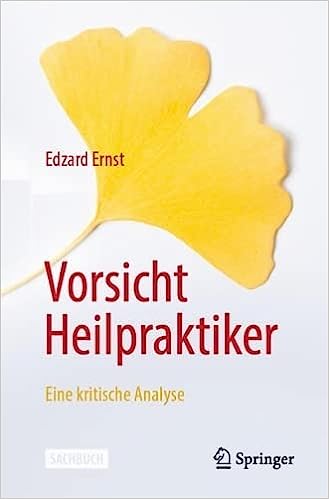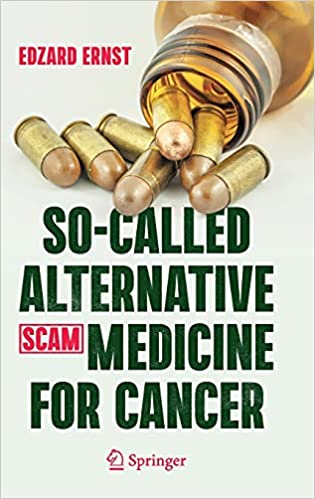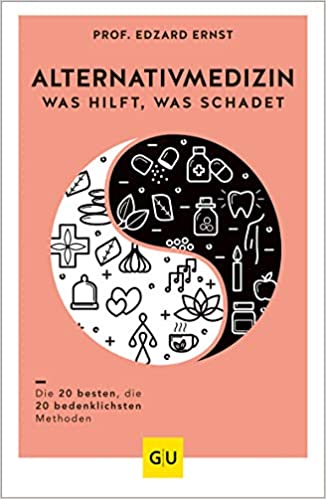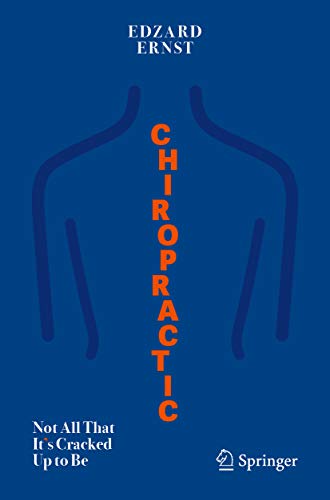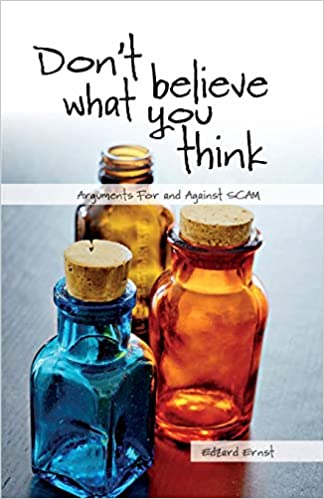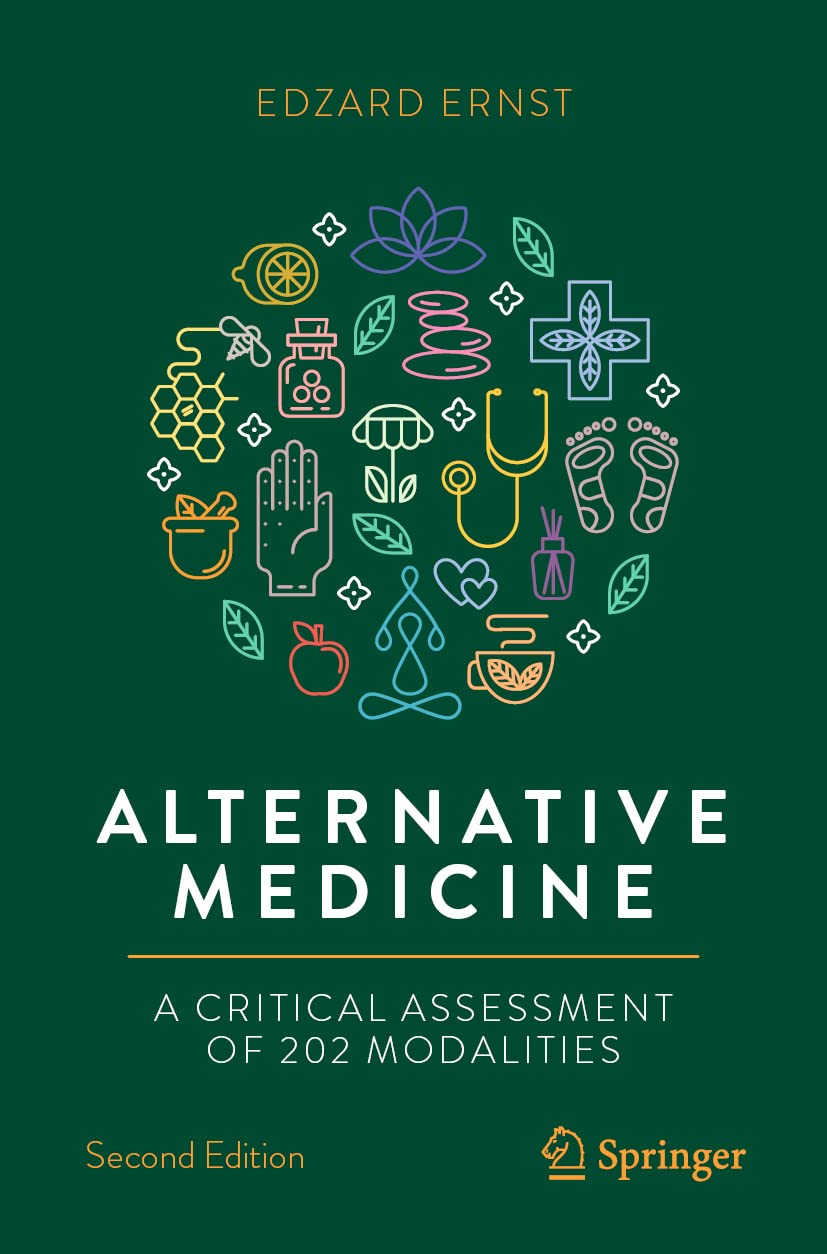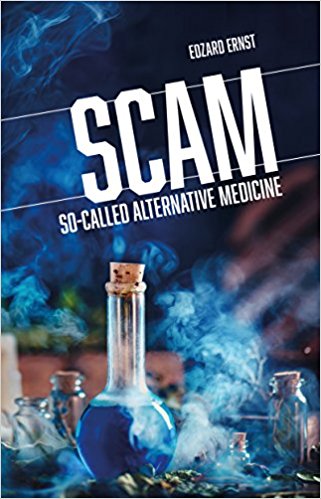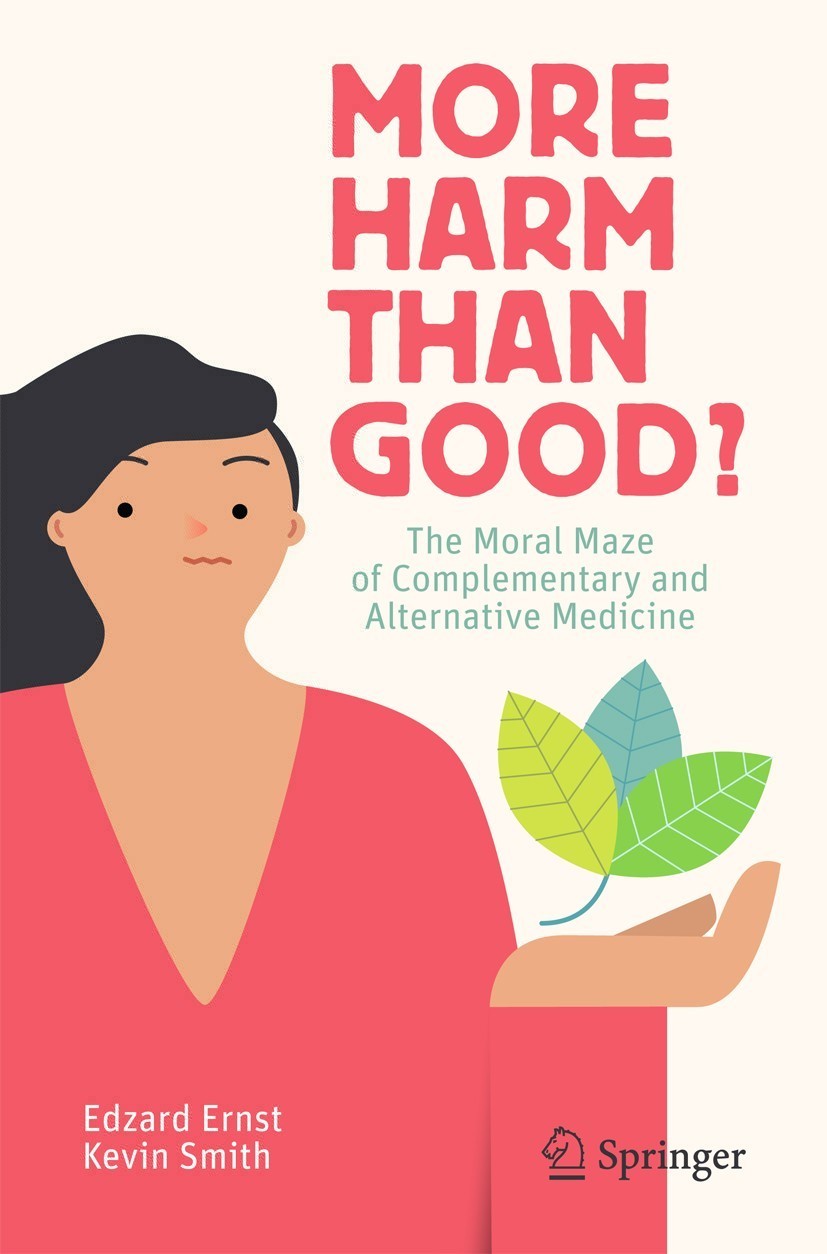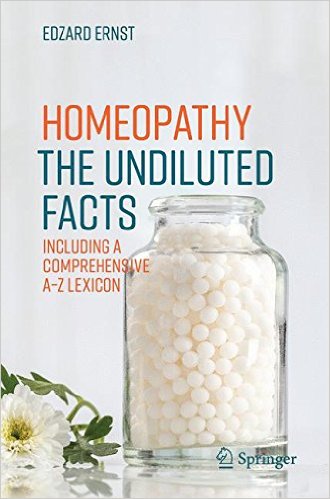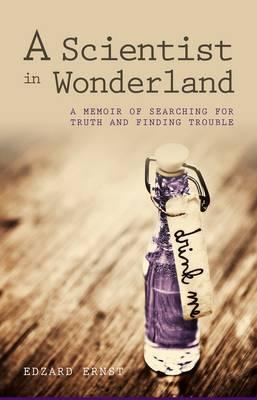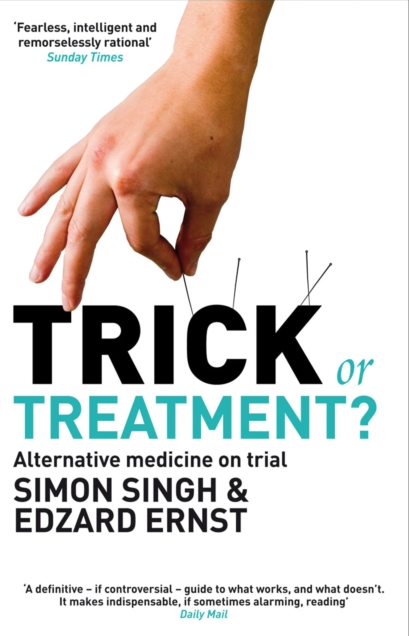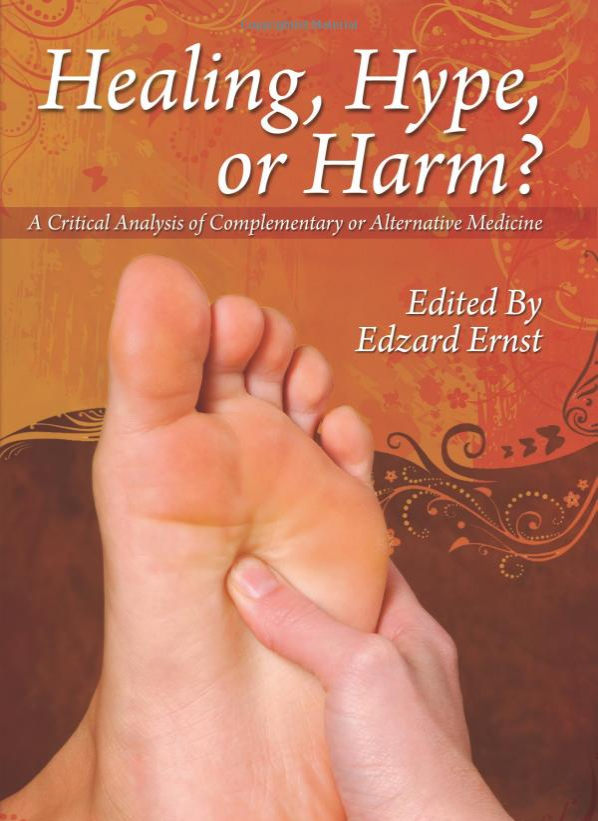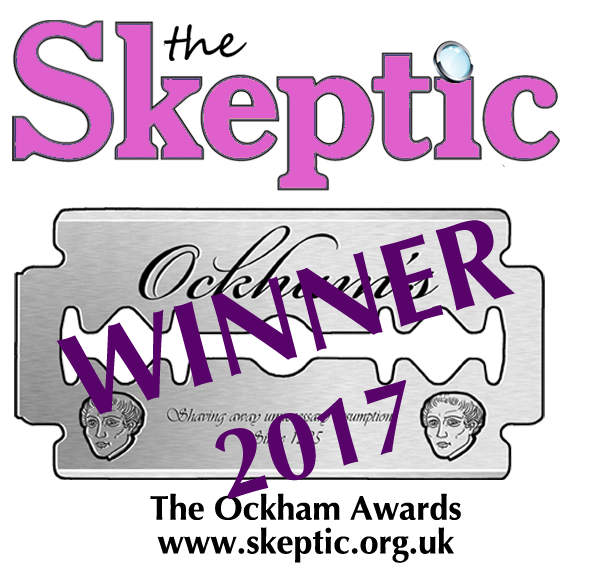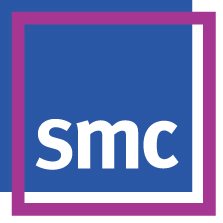There are many fans of so-called alternative medicine (SCAM) who think that vitamin C is the answer to COVID (and many other ailments). Here, for instance, is a press release from Damien Downing (we already encountered him in my last post):
Vitamin C and COVID-19 Coronavirus
by Damien Downing, MBBS, MRSB and Gert Schuitemaker, PhD
FOR IMMEDIATE RELEASE
Orthomolecular Medicine News Service, Feb 28, 2020
There is only one existing treatment for the new coronavirus: vitamin C.
Vitamin C supports your immune system. Vitamin C helps to kill the virus and reduces the symptoms of infection. It’s not a COVID “cure,” but nothing is. It might just save your life, though, and will definitely reduce the severity of the infection.
If someone tells you it’s not proven, consider two things:
-
- Nothing is proven to work against COVID-19, because it is a new virus.
- Vitamin C has worked against every single virus including influenzas, pneumonia, and even poliomyelitis.
What to do
If you do nothing else, start taking vitamin C right away; at least 3 grams a day, spread right across the day. That’s a 1,000 milligram capsule every 8 hours, or a level teaspoon of powder dissolved in a pint or so of water, drank all through the day.
If you’re smart and motivated, do all the other things recommended in our previous release Vitamin C Protects Against Coronavirus (http://orthomolecular.org/resources/omns/v16n04.shtml)
When and if you catch a bug that might be COVID-19, simply increase your vitamin C intake: a rounded teaspoon (that’s 4 to 5 grams) in water (which helps to keep you hydrated) every 3 or 4 hours. And keep on taking it.
Do you consult a doctor? Do you self-isolate? Yes and yes. Of course you do; that’s your duty to others.
Vitamin C and the other measures are what you do for yourself…
Damien Downing’s press release did not age all that well, I fear. The evidence to support his claims is not just flimsy, it is negative. Let me show you the most recent (October 2021) systematic review of the subject:
Background and aims: Vitamin C has been used as an anti-oxidant in various diseases including viral illnesses like coronavirus disease (COVID-19).
Methods: Meta-analysis of randomized controlled trials (RCT) investigating the role of vitamin C supplementation in COVID-19 was carried out.
Results: Total 6 RCTs including n = 572 patients were included. Vitamin C treatment didn’t reduce mortality (RR 0.73, 95% CI 0.42 to 1.27; I2 = 0%; P = 0.27), ICU length of stay [SMD 0.29, 95% CI -0.05 to 0.63; I2 = 0%; P = 0.09), hospital length of stay (SMD -0.23, 95% CI -1.04 to 0.58; I2 = 92%; P = 0.57) and need for invasive mechanical ventilation (Risk Ratio 0.93, 95% CI 0.61 to 1.44; I2 = 0%; P = 0.76). Further sub-group analysis based on severity of illness (severe vs. non-severe), route of administration (IV vs. oral) and dose (high vs. low) failed to show any observable benefits.
Conclusion: No significant benefit noted with vitamin C administration in COVID-19. Well-designed RCTs with standardized control group needed on this aspect.
What does that tell us?
I think it suggests three things:
- Damien Downing might be suffering from proctophasia,
- we would be ill-advised to follow the advice of such pseudo-experts,
- vitamin C is not the solution to COVID-19 infections.
‘Survive Cancer’ is a UK charity that promotes and researches orthomolecular medicine in the treatment of cancer, septic shock, mental health, and other illnesses. They claim to provide information about research and trials and a multi-pronged treatment approach for sufferers of cancer. Specifically for cancer, they recommend the following ‘top ten‘ so-called alternative medicines (SCAMs):
- Gerson
- Vitamin C therapy
- Anti-angiogenic therapy
- Immunotherapy
- Photodynamic-/Photo-therapy
- Melatonin
- Bisphosphonates (for bone cancer)
- Coley’s toxins
- Salvestrols
- Pain management
Interesting?
Yes, because it is misleading to the extreme. Here, for example, is what they say about an old favorite of mine (and of Prince Charles):
Gerson Therapy
Max Gerson was a German doctor who in the early twentieth century devised an anti-cancer diet and regime based on radically altering the sodium/potassium ratio in the body for the better, thus allowing optimal cellular functions, and nutrition, coupled with intensive detoxification through the use of coffee enemas.
Coffee enemas (see Detox, in First Steps, 5 Rs of Cancer Survival,) are a scientifically established, and medically accepted, way of stimulating the production of glutathione-s-transferases, a major liver detoxifying enzyme family. The diet is vegetarian, low in protein, with fresh organic fruit and vegetable juices daily, and certain specified supplements, such as potassium, niacin and vitamin C. At the end of his life Gerson testified before Congress with the details of 50 cases he had cured. His daughter, Charlotte, has continued Gerson’s work in the U.S. However, she has not made an attempt to integrate modern nutritional state-of-the-art knowledge into the therapy. This is being done by Gar Hildebrand. A retrospective study showed that the Gerson therapy is much more effective than chemotherapy for ovarian cancer and melanoma, both particularly aggressive forms of cancer. Gerson himself had notable successes with various kinds of brain tumour, even after some neurological damage had occurred. Orthomolecular Oncology suggests combining Immunopower with Gerson as an update. We can also cite a remarkable case of a 11 year remission in Multiple Myeloma, another fast-moving, relentless cancer without conventional cure, otherwise conventionally untreated, achieved through a combination of Gerson and modern orthomolecular approaches. Gerson is a powerful, comprehensive therapy, still capable of producing cures, even in its unmodulated form. However, it requires great discipline, time, and extra assistance. Read Gerson’s book and/or contact the Gerson Institute for further details.
One does not need to be a genius to predict that cancer patients following this sort of advice, will significantly shorten their lives, diminish their quality of life and empty their bank account. One does, however, need to be a genius to predict when the UK charity commission is finally going to do something about the many UK charities that prey on vulnerable cancer patients.
PS
I almost forgot: the patrons of this charity are:
- HRH Princess Michael of Kent
- The Earl Baldwin of Bewdley
(Co-Chairman of the Parliamentary Committee for Alternative and Complementary Medicine) - Dr Damien Downing, MBBS, (Editor of The Journal of Nutritional and Environmental Medicine)
- Mr Peter J Gravett, MB, MRCS, FRCPath.
- Dr P J Kingsley, MB, BS, MRCS, LRCP, FAAEM, DA, D.Obst. RCOG
Thanks to Richard Rasker, a regular commentator on this blog, I learnt a new word – a word that I intend to use regularly from now on:
proctophasia
You won’t find the term in the dictionary, and even the most decorated specialist might not (yet?) be familiar with it. Proktophasia afflicts predominantly the most ardent evangelists amongst the proponents of so-called alternative medicine (SCAM), COVID-deniers, and anti-vaxxers. And this is, of course, the reason why the affliction surfaces regularly on this blog, and why Richard was able to recognize it and give it its proper terminology.
The symptoms of proctophasia are easily remembered, once we know that this medical term is derived from ‘speaking out of one’s arse’, a less than polite term for talking utter rubbish. Accordingly, proctophasia shows itself in the following manner:
- talking rubbish,
- talking rubbish,
- talking rubbish,
- talking rubbish,
- talking rubbish,
- talking rubbish,
- talking rubbish,
- talking rubbish,
- talking rubbish even after being corrected,
- repeating one’s own stupid arguments ad nauseam,
- repeating one’s own stupid arguments ad nauseam,
- repeating one’s own stupid arguments ad nauseam,
- repeating one’s own stupid arguments ad nauseam,
- repeating one’s own stupid arguments ad nauseam,
- being offended when, eventually, someone arrives at the correct diagnosis of ‘speaking out of one’s arse’,
- being nevertheless undeterred and repeating one’s own stupid arguments ad nauseam.
As such, the diagnosis is not all that difficult to make. The crucial question, however, is this:
can proctophasia be treated successfully?
It does seem unlikely that any form of SCAM is effective in the management of proctophasia. Formal trials have, as far as I know, not been conducted. Yet, we can assume from the fact that the proctophasia victims who made themselves known in the comments sections of this blog are on multiple SCAM treatments, and their condition does not seem to improve noticeably. On the contrary, one could even speculate that SCAM is the cause of the disease (but, of course, this hypothesis would need to be tested before we should accept it as fact).
Until there is a cure, what can be done?
I am afraid not much. In the past, I have had to ban some particularly seriously afflicted individuals. No doubt, I will have to take such drastic measures again in the future. But I always do that with a heavy heart.
Why?
Because one feature of the typical proctophasia victim has not yet been mentioned. These people can be hilariously funny – more so than any stand-up comedian. And that is the reason why I will continue to be as patient with them as I possibly can. In other words, proctophasia significantly increases the entertainment value of this blog.
Thanks, guys!
In a recently published study, the willingness to be vaccinated of parents of underage children and persons without underage children was examined. The study was based on a random sample (telephone survey, n = 2014, survey between 12.11.2020 and 10.12.2020).
The results revealed that parents consistently show a lower propensity to vaccinate with a COVID-19 vaccine than respondents without minor children (54.1% vs. 71.1%). Fathers showed a more pronounced own willingness to vaccinate than mothers. Furthermore, men were more willing than women to have their own child vaccinated with a COVID-19 vaccine.
The overall sample also showed that a rejection of so-called alternative medicine (SCAM) was associated with a significantly higher willingness to be vaccinated. There was also a significant correlation between the attitude towards homeopathy and one’s own willingness to be vaccinated. If homeopathy was supported, the willingness to vaccinate was lower. This correlation between the attitude towards homeopathy and willingness to vaccinate was also evident in the sub-sample of parents. Among the parents, it was again the women who significantly more often had a positive attitude towards homeopathy than men, who more often do not think anything of it.
This new evidence ties in neatly with many of my previous posts on the subject of SCAM and vaccination, for instance:
- More information on homeopaths’ and anthroposophic doctors’ attitude towards vaccinations
- The anti-vaccination movement is financed by the dietary supplement industry
- The UK Society of Homeopaths, a hub of anti-vaccination activists?
- HOMEOPATHY = “the complete alternative to vaccination” ?!?!
- Are anthroposophy-enthusiasts for or against vaccinations?
- Far too many chiropractors believe that vaccinations do not have a positive effect on public health
- Andrew Wakefield, Donald Trump, SCAM, and the anti-vaccination cult
- Naturopaths’ counselling against vaccinations could be criminally negligent
- HOMEOPATHS AGAINST VACCINATION: “The decision to vaccinate and how you implement that decision is yours and yours alone”
- Use of alternative medicine is associated with low vaccination rates
- Integrative medicine physicians tend to harbour anti-vaccination views
- Vaccination: chiropractors “espouse views which aren’t evidence based”
- Faith-healing as an alternative to vaccination?
- Learning about homeopathy the hard way: the story of Aaron Rodgers
- Patients consulting chiropractors, homeopaths, or naturopaths are less likely to agree to the flu jab
- Parents’ Willingness to Vaccinate with a COVID-19 Vaccine: strongly influenced by homeopathy
- “The uncensored truth” about COVID-19 vaccines” … as told by some chiro loons
- Beliefs and behaviors of US chiropractors
- Many naturopaths, homeopaths, and chiropractors are a risk to public health
- Homeopaths (and other SCAM practitioners) are peddling dangerous myths
- Misinformation and fraudulent claims about boosting immunity during the pandemic
Collectively, this evidence tells us that:
- the effect has been shown in many different ways,
- it can therefore be assumed to be real,
- it is not confined to COVID vaccinations,
- it is not confined to one particular branch of SCAM,
- it even affects MDs (who surely should know better) dabbling in SCAM,
- it has a long history,
- it is prevalent in many, if not most countries,
- it does real harm.
So, the next time someone tells you that SCAM and SCAM practitioners have a positive influence on public health, tell them to think again.
I have said it often before, and I will say it again:
Homeopathy and other ineffective so-called alternative medicines (SCAMs) are dangerous mostly because they might replace effective treatments.
The tragic death of an Austrian boy is a stark reminder of this fact. Even though this happened a decade ago, I only just came across this case. It was, to the best of my knowledge, never published in English. Allow me, therefore, to summarize it here:
In 2011, a judge sentenced a couple from East Tyrol to a one-year suspended sentence. Their son, who suffered from a rare congenital immune system disorder (SCID*), had been treated only with homeopathy until he died. The doctor who treated the boy in this way received the same sentence.** The verdicts took into account that the parents and the family doctor did not act out of sheer ignorance, but had been informed about the nature of the disease and its consequences.
The parents told the court that they had previously had extremely negative experiences with conventional medicine when their first two children, who suffered from the same condition, had died. When their third child fell ill, the parents took him to a clinic where a bone marrow transplant was to be carried out, which, according to an expert witness, would have had a 95 % chance of curing the boy. Because the parents were put off by the sight of other children in the hospital, they took their son home again and withheld all further conventional treatments or appropriate examinations. Instead, they instructed their family doctor to cure the boy with homeopathy. The doctor refrained from administering antibiotics when the illness worsened due to an infection and failed to admit the boy to a hospital when he became severely ill.
The child then died of sepsis. The autopsy revealed that he was malnourished and one of his ear canals as well as his lungs were necrotic with inflammation.
______________________
It is hard not to be repulsed and nauseated by such stories. They show how dangerously unreasonable some homeopaths and their followers are. And they remind us that even a seemingly harmless SCAM will cost lives in the hands of such fanatics.
* Severe combined immunodeficiency (SCID) is a group of rare disorders caused by mutations in different genes involved in the development and function of infection-fighting immune cells. Infants with SCID appear healthy at birth but are highly susceptible to severe infections. The condition is fatal, usually within the first year or two of life, unless infants receive immune-restoring treatments, such as transplants of blood-forming stem cells, gene therapy, or enzyme therapy.
**Personally, I find the sentence for the doctor far too lenient. One could argue that the parents had been punished by the loss of their child and thus deserve merci, but the doctor?
This post has no direct relation to so-called alternative medicine (SCAM), except that many fans of SCAM and most anti-vaxxers claim that COVID-19 is ‘just a flu’ and therefore should not be taken all that seriously. A little bit of this or that SCAM is surely enough for protecting us, they claim. To all who are of this opinion, I recommend reading this new BMJ paper very carefully.
This analysis aimed at estimating the changes in life expectancy and years of life lost in 2020 associated with the covid-19 pandemic. A time-series analysis was undertaken with the data from 37 upper-middle and high-income countries or regions with reliable and complete mortality data. The annual all-cause mortality data from the Human Mortality Database for 2005-20 were used, harmonized, and disaggregated by age and sex.
The reduction in life expectancy was estimated as the difference between observed and expected life expectancy in 2020 using the Lee-Carter model. Excess years of life lost were estimated as the difference between the observed and expected years of life lost in 2020 using the World Health Organization standard life table.
A reduction in life expectancy in men and women was observed in all the countries studied except New Zealand, Taiwan, and Norway, where there was a gain in life expectancy in 2020. No evidence was found of a change in life expectancy in Denmark, Iceland, and South Korea. The highest reduction in life expectancy was observed in
- Russia (men: −2.33, 95% confidence interval −2.50 to −2.17; women: −2.14, −2.25 to −2.03),
- the United States (men: −2.27, −2.39 to −2.15; women: −1.61, −1.70 to −1.51),
- Bulgaria (men: −1.96, −2.11 to −1.81; women: −1.37, −1.74 to −1.01),
- Lithuania (men: −1.83, −2.07 to −1.59; women: −1.21, −1.36 to −1.05),
- Chile (men: −1.64, −1.97 to −1.32; women: −0.88, −1.28 to −0.50),
- Spain (men: −1.35, −1.53 to −1.18; women: −1.13, −1.37 to −0.90).
Years of life lost in 2020 were higher than expected in all countries except Taiwan, New Zealand, Norway, Iceland, Denmark, and South Korea. In the remaining 31 countries, more than 222 million years of life were lost in 2020, which is 28.1 million (95% confidence interval 26.8m to 29.5m) years of life lost more than expected (17.3 million (16.8m to 17.8m) in men and 10.8 million (10.4m to 11.3m) in women). The highest excess years of life lost per 100 000 population were observed in
- Bulgaria (men: 7260, 95% confidence interval 6820 to 7710; women: 3730, 2740 to 4730),
- Russia (men: 7020, 6550 to 7480; women: 4760, 4530 to 4990),
- Lithuania (men: 5430, 4750 to 6070; women: 2640, 2310 to 2980),
- the US (men: 4350, 4170 to 4530; women: 2430, 2320 to 2550),
- Poland (men: 3830, 3540 to 4120; women: 1830, 1630 to 2040),
- Hungary (men: 2770, 2490 to 3040; women: 1920, 1590 to 2240).
The excess years of life lost were relatively low in people younger than 65 years, except in Russia, Bulgaria, Lithuania, and the US where the excess years of life lost was >2000 per 100 000.
The authors concluded that more than 28 million excess years of life were lost in 2020 in 31 countries, with a higher rate in men than women. Excess years of life lost associated with the covid-19 pandemic in 2020 were more than five times higher than those associated with the seasonal influenza epidemic in 2015.
_______________________
I hope (yet, sadly, I am not sure) that this will silence all those who like to claim:
it’s just a flu!
Remember the 10:23 Campaign? It was an awareness and protest campaign against homoeopathy organised by the Merseyside Skeptics Society, a non-profit organisation, to oppose the sale of homoeopathic products in the UK. It consisted of volunteers publicly taking overdoses of homeopathic remedies. With their actions, they wanted to demonstrate that homeopathic remedies are devoid of active ingredients and physiological effects. Suicide by homeopathy, they showed us, was impossible.
But they were mistaken – it is possible after all!
A few days ago, it was reported that an Italian doctor has died of a COVID-19 infection. This is tragic, no doubt, but in itself, it is not all that newsworthy in the context of this blog. What makes it remarkable is the fact that the doctor was a convinced homeopath who had refused to get vaccinated and was adamant that homeopathy would protect him.
Domenico Giannola, a doctor homeopath from Cinisi, died of complications due to Covid-19 at Palermo’s Cervello hospital. Dr. Giannola had not been vaccinated and after he got infected with COVID-19, he had tried to treat himself with homeopathic remedies.
Domenico Giannola was a well-known advocate of anthroposophical and homeopathic medicine. In a Youtube video from last year, he described his ‘methods of treatment. As he had a preexisting heart condition, he was a high-risk patient.
After he fell ill, he had been in home isolation for several days and was followed by the special continuity care unit (Usca) of the Palermo hospital. He had always insisted that he had no intention of becoming infected and would treat himself at home with lactoferrin and homeopathic remedies. Lactoferrin is one of the components of the immune system of the body; it has antimicrobial activity against bacteria and fungi.
As his condition worsened, Domenico Giannola was eventually transported to the emergency room of the Cervello hospital in Palermo by a 118 ambulance. He died an hour after his arrival at the hospital.
_________________________
I find such reports tragic beyond words. At the same time, they are deeply worrying. A question that one needs to ask is this: if some homeopaths do this to themselves, what are they capable of inflicting on their patients?
If you are not American, you will ask: Who the Dickens is Aaron Rodgers? I too had to look it up. He is an American football star. And it seems that US football fans are worried about him and his rather brainless idea of homeopathic vaccination.
Yesterday it was confirmed that the ‘Green Bay Packers’ quarterback, Aaron Rodgers, had tested positive for Covid and will thus have to miss at least 10 days of crucial games. Only the unvaccinated players are forced to miss a mandatory 10 games following a positive test — while vaccinated players can return at any point, as long as they provide two negative tests 24 hours apart and are not experiencing symptoms.
Everyone had assumed that Rodgers was vaccinated – after all, he had confirmed it when asked about his vaccination status by a reporter prior to the start of the season. Presumably, he thought so himself when he affirmed, with a straight face, that he was immunized.
But now it has been revealed that Aaron Rodgers was given a homeopathic vaccination for COVID from his personal doctor. When the NFL reviewed his treatment, they did not deem it suitable to appropriately label him as “vaccinated.”
Per NFL.com:
Rodgers received homeopathic treatment from his personal doctor to raise his antibody levels and asked the NFL to review his status. The league pointed Rodgers to the NFL-NFLPA protocols, which do not account for such an exemption for players. So, Rodgers remained subject to a variety of restrictions, including daily testing, mask-wearing and high-risk close contact protocol that would force him to isolate for five days based on interaction with a positive individual, even if he tested negative.
Now, as an unvaccinated player, Aaron Rodgers will have to sit out the next 10 days, at least. That means he won’t play for the Packers this Sunday against the Kansas City Chiefs. The soonest he can return to the team is Saturday, November 13, one day before the Packers’ week 10 matchup with the Seattle Seahawks.
I don’t suppose that Aaron Rodgers is an avid reader of my blog. Pity! Because, if he had followed our discussions, he would have known what to think of homeopathy in general and of homeopathic vaccination in particular:
- HOMEOPATHY = “the complete alternative to vaccination” ?!?!
- Homeopathic vaccines do not evoke antibody responses
- Helios abandons ‘homeopathic vaccines’
- Homeopathic immunisation is dangerous, unethical madness
- Homeopaths should carry public health warnings!
- Is this the crown of the Corona-idiocy? Nosodes In Prevention And Management Of COVID -19
- Recommending homeoprophylaxis is unethical, irresponsible and possibly even criminal
- Let’s be blunt: homeopathy is bogus – but homeoprophylaxis is worse, much worse!
Some people seem to insist on finding out the hard way about homeopathy. Personally, I hope Aaron Rodgers recovers fully from both his COVID infection and his homeopathic fantasies. Oh, I almost forgot: I also want to thank him for his sacrifice; it hopefully leads to a better understanding in the US of the fact that homeopathy is a placebo treatment.
PS
This is what the man himself had to say:
Well-conducted systematic reviews (SRs) should in principle provide the most reliable evidence on the effectiveness of acupuncture. However, limitations on the methodological rigour of SRs may impact the trustworthiness of their conclusions. This cross-sectional study was aimed at evaluating the methodological quality of recent SRs of acupuncture.
The Cochrane Database of Systematic Reviews, MEDLINE, and EMBASE were searched for SRs focusing on manual acupuncture or electro-acupuncture published during January 2018 and March 2020. Eligible SRs needed to contain at least one meta-analysis and be published in the English language. Two independent reviewers extracted the bibliographical characteristics of the included SRs with a pre-designed questionnaire and appraised the methodological quality of the reviews with the validated AMSTAR 2 (A MeaSurement Tool to Assess systematic Reviews 2). The associations between bibliographical characteristics and methodological quality ratings were explored using Kruskal-Wallis rank tests and Spearman’s rank correlation coefficients.
A total of 106 SRs were appraised. The results were as follows:
- one (0.9%) SR was of high methodological quality,
- no review (0%) was of moderate quality,
- six (5.7%) were of low quality,
- 99 (93.4%) were of critically low quality.
Only ten (9.4%) provided an a priori protocol, only four (3.8%) conducted a comprehensive literature search, only five (4.7%) provided a list of excluded studies, and only six (5.7%) performed a meta-analysis appropriately. Cochrane SRs, updated SRs, and SRs that did not search non-English databases had relatively higher overall quality. The vast majority (87.7%) of the 106 reviews included in this analysis originated from Asia. Conflicts of interest of the review authors were declared in only 2 of the 106 reviews.
The authors concluded that the methodological quality of SRs on acupuncture is unsatisfactory. Future reviewers should improve critical methodological aspects of publishing protocols, performing comprehensive search, providing a list of excluded studies with justifications for exclusion, and conducting appropriate meta-analyses. These recommendations can be implemented via enhancing the technical competency of reviewers in SR methodology through established education approaches as well as quality gatekeeping by journal editors and reviewers. Finally, for evidence users, skills in SR critical appraisal remain to be essential as relevant evidence may not be available in pre-appraised formats.
On this blog, I have often complained about the lack of critical input and the poor quality of systematic reviews of so-called alternative medicine (SCAM), particularly of acupuncture, and especially of Chinese reviews, and even more especially Chinese reviews of (mostly) Chinese studies. This new paper is a valuable confirmation of this fast-growing deficit.
One does not need to be a prophet to predict that this pollution of the literature with complete rubbish will have detrimental effects. Because poor reviews almost always draw an over-optimistic picture of the value of acupuncture, this phenomenon must seriously mislead the public. The end result will be that the public believes acupuncture to be effective.
I cannot help thinking that this is, in fact, the intended aim of the authors of such poor, false-positive reviews. Moreover, a glance at the subject areas of the reviews in the list below gives the impression that China is heavily promoting the idea that acupuncture is a panacea. Yet there is good evidence to show that acupuncture is little more than placebo therapy.
In my last post, I have reported that I am an author of many of the frequently-cited systematic acupuncture reviews. You might thus assume that I am a significant part of this pollution by rubbish reviews. This would, however, be an entirely wrong conclusion. The above analysis covers a period when my unit had already been closed, and I am thus not responsible for a single of the papers included in the above analysis.
List of included systematic reviews
| ID | Included systematic reviews |
| 1 | Acupuncture for primary insomnia: An updated systematic review of randomized controlled trials |
| 2 | Efficacy and safety of acupuncture for essential hypertension: A meta-analysis |
| 3 | Acupuncture for the treatment of sudden sensorineural hearing loss: A systematic review and meta-analysis: Acupuncture for SSNHL |
| 4 | Effectiveness of Acupuncturing at the Sphenopalatine Ganglion Acupoint Alone for Treatment of Allergic Rhinitis: A Systematic Review and Meta-Analysis |
| 5 | Acupuncture and clomiphene citrate for anovulatory infertility: a systematic review and meta-analysis |
| 6 | Acupuncture for primary trigeminal neuralgia: A systematic review and PRISMA-compliant meta-analysis |
| 7 | Acupuncture as an adjunctive treatment for angina due to coronary artery disease: A meta-analysis |
| 8 | Conventional treatments plus acupuncture for asthma in adults and adolescent: A systematic review and meta-analysis |
| 9 | Optimizing acupuncture treatment for dry eye syndrome: A systematic review |
| 10 | Acupuncture using pattern-identification for the treatment of insomnia disorder: a systematic review and meta-analysis of randomized controlled trials |
| 11 | Efficacy and Safety of Auricular Acupuncture for Cognitive Impairment and Dementia: A Systematic Review |
| 12 | Acupuncture for cognitive impairment in vascular dementia, alzheimer’s disease and mild cognitive impairment: A systematic review and meta-analysis |
| 13 | Effectiveness of pharmacopuncture for cervical spondylosis: A systematic review and meta-analysis |
| 14 | Acupuncture combined with swallowing training for poststroke dysphagia: a meta-analysis of randomised controlled trials |
| 15 | Scalp acupuncture treatment for children’s autism spectrum disorders: A systematic review and meta-analysis |
| 16 | Acupuncture for Post-stroke Shoulder-Hand Syndrome: A systematic review and meta-analysis |
| 17 | Systematic review of acupuncture for the treatment of alcohol withdrawal syndrome |
| 18 | Acupuncture for hip osteoarthritis |
| 19 | Clinical Benefits of Acupuncture for the Reduction of Hormone Therapy-Related Side Effects in Breast Cancer Patients: A Systematic Review |
| 20 | Combination therapy of scalp electro-acupuncture and medication for the treatment of Parkinson’s disease: A systematic review and meta-analysis |
| 21 | Acupuncture for migraine: A systematic review and meta-analysis |
| 22 | Acupuncture to Promote Recovery of Disorder of Consciousness after Traumatic Brain Injury: A Systematic Review and Meta-Analysis |
| 23 | Acupuncture Compared with Intramuscular Injection of Neostigmine for Postpartum Urinary Retention: A Systematic Review and Meta-Analysis of Randomized Controlled Trials |
| 24 | Acupuncture for the relief of hot flashes in breast cancer patients: A systematic review and meta-analysis of randomized controlled trials and observational studies |
| 25 | Effectiveness and Safety of Acupuncture for Perimenopausal Depression: A Systematic Review and Meta-Analysis of Randomized Controlled Trials |
| 26 | Acupuncture plus Chinese Herbal Medicine for Irritable Bowel Syndrome with Diarrhea: A Systematic Review and Meta-Analysis |
| 27 | Electroacupuncture as an adjunctive therapy for motor dysfunction in acute stroke survivors: A systematic review and meta-analyses |
| 28 | Acupuncture for Acute Pancreatitis: A Systematic Review and Meta-analysis |
| 29 | Acupuncture for chronic fatigue syndrome: a systematic review and meta-analysis |
| 30 | Compare the efficacy of acupuncture with drugs in the treatment of Bell’s palsy: A systematic review and meta-analysis of RCTs |
| 31 | The effectiveness and safety of acupuncture for the treatment of myasthenia gravis: a systematic review and meta-analysis of randomized controlled trials |
| 32 | Acupuncture therapy for fibromyalgia: A systematic review and meta-analysis of randomized controlled trials |
| 33 | The effectiveness of acupuncture therapy in patients with post-stroke depression: An updated meta-analysis of randomized controlled trials |
| 34 | Fire needling for herpes zoster: A systematic review and meta-analysis of randomized clinical trials |
| 35 | Comparison between the Effects of Acupuncture Relative to Other Controls on Irritable Bowel Syndrome: A Meta-Analysis |
| 36 | Manual Acupuncture for Optic Atrophy: A Systematic Review and Meta-Analysis |
| 37 | Effect of warm needling therapy and acupuncture in the treatment of peripheral facial paralysis: A systematic review and meta-analysis |
| 38 | The Effect of Acupuncture in Breast Cancer-Related Lymphoedema (BCRL): A Systematic Review and Meta-Analysis |
| 39 | The Efficacy of Acupuncture in Chemotherapy-Induced Peripheral Neuropathy: Systematic Review and Meta-Analysis |
| 40 | The maintenance effect of acupuncture on breast cancer-related menopause symptoms: a systematic review |
| 41 | The effectiveness of acupuncture in the management of persistent regional myofascial head and neck pain: A systematic review and meta-analysis |
| 42 | Acupuncture for the Treatment of Adults with Posttraumatic Stress Disorder: A Systematic Review and Meta-Analysis |
| 43 | The effectiveness of superficial versus deep dry needling or acupuncture for reducing pain and disability in individuals with spine-related painful conditions: a systematic review with meta-analysis |
| 44 | Effects of dry needling trigger point therapy in the shoulder region on patients with upper extremity pain and dysfunction: a systematic review with meta-analysis |
| 45 | Is dry needling effective for low back pain?: A systematic review and PRISMA-compliant meta-analysis |
| 46 | The effectiveness and safety of acupuncture for patients with atopic eczema: a systematic review and meta-analysis |
| 47 | Comparing verum and sham acupuncture in fibromyalgia syndrome: a systematic review and meta-analysis |
| 48 | Acupuncture for symptomatic gastroparesis |
| 49 | The Efficacy and Safety of Acupuncture for the Treatment of Children with Autism Spectrum Disorder: A Systematic Review and Meta-Analysis |
| 50 | Acupuncture Versus Sham-acupuncture: A Meta-analysis on Evidence for Non-immediate Effects of Acupuncture in Musculoskeletal Disorders |
| 51 | Acupuncture Treatment for Post-Stroke Dysphagia: An Update Meta-Analysis of Randomized Controlled Trials |
| 52 | Effectiveness of Acupuncture Used for the Management of Postpartum Depression: A Systematic Review and Meta-Analysis |
| 53 | Clinical effects and safety of electroacupuncture for the treatment of post-stroke depression: a systematic review and meta-analysis of randomised controlled trials |
| 54 | Placebo effect of acupuncture on insomnia: a systematic review and meta-analysis |
| 55 | Acupuncture for Chronic Pain-Related Insomnia: A Systematic Review and Meta-Analysis |
| 56 | Evidence for Dry Needling in the Management of Myofascial Trigger Points Associated With Low Back Pain: A Systematic Review and Meta-Analysis |
| 57 | Warm needle acupuncture in primary osteoporosis management: a systematic review and meta-analysis |
| 58 | Acupuncture for overactive bladder in adults: a systematic review and meta-analysis |
| 59 | Traditional acupuncture for menopausal hot flashes: A systematic review and meta-analysis of randomized controlled trials |
| 60 | The effectiveness of acupuncture for osteoporosis: A systematic review and meta-analysis |
| 61 | Long-term effects of acupuncture for chronic prostatitis/chronic pelvic pain syndrome: Systematic review and single-Arm meta-Analyses |
| 62 | Does acupuncture the day of embryo transfer affect the clinical pregnancy rate? Systematic review and meta-analysis |
| 63 | Acupuncture treatments for infantile colic: a systematic review and individual patient data meta-analysis of blinding test validated randomised controlled trials |
| 64 | Acupuncture performed around the time of embryo transfer: a systematic review and meta-analysis |
| 65 | Is Acupuncture Effective for Improving Insulin Resistance? A Systematic Review and Meta-analysis |
| 66 | Efficacy of acupuncture in the management of post-apoplectic aphasia: A systematic review and meta-analysis of randomized controlled trials |
| 67 | Acupuncture for lumbar disc herniation: a systematic review and meta-analysis |
| 68 | Traditional Chinese acupuncture and postpartum depression: A systematic review and meta-analysis |
| 69 | Acupuncture for Chronic Pain: Update of an Individual Patient Data Meta-Analysis |
| 70 | Acupuncture Therapy for Functional Effects and Quality of Life in COPD Patients: A Systematic Review and Meta-Analysis |
| 71 | Electroacupuncture for Reflex Sympathetic Dystrophy after Stroke: A Meta-Analysis |
| 72 | The Effect of Patient Characteristics on Acupuncture Treatment Outcomes |
| 73 | The efficacy and safety of acupuncture in women with primary dysmenorrhea: A systematic review and meta-analysis |
| 74 | Role of acupuncture in the treatment of insulin resistance: A systematic review and meta-analysis |
| 75 | Appropriateness of sham or placebo acupuncture for randomized controlled trials of acupuncture for nonspecific low back pain: A systematic review and meta-analysis |
| 76 | Evidence of efficacy of acupuncture in the management of low back pain: a systematic review and meta-analysis of randomised placebo- or sham-controlled trials |
| 77 | The effects of acupuncture on pregnancy outcomes of in vitro fertilization: A systematic review and meta-analysis |
| 78 | Acupuncture for migraine without aura: a systematic review and meta-analysis |
| 79 | Acupuncture for acute stroke |
| 80 | Acupuncture at Tiaokou (ST38) for Shoulder Adhesive Capsulitis: What Strengths Does It Have? A Systematic Review and Meta-Analysis of Randomized Controlled Trials |
| 81 | Acupuncture for hypertension |
| 82 | The effect of acupuncture on Bell’s palsy: An overall and cumulative meta-analysis of randomized controlled trials |
| 83 | Effects of acupuncture on cancer-related fatigue: a meta-analysis |
| 84 | Acupuncture for adults with overactive bladder |
| 85 | Electroacupuncture for Postoperative Urinary Retention: A Systematic Review and Meta-Analysis |
| 86 | Meta-Analysis of Electroacupuncture in Cardiac Anesthesia and Intensive Care |
| 87 | Acupuncture therapy improves health-related quality of life in patients with chronic obstructive pulmonary disease: A systematic review and meta-analysis |
| 88 | The effect of acupuncture on the quality of life in patients with migraine: A systematic review and meta-analysis |
| 89 | Cognitive improvement effects of electro-acupuncture for the treatment of MCI compared with Western medications: A systematic review and Meta-analysis 11 Medical and Health Sciences 1103 Clinical Sciences |
| 90 | Oriental herbal medicine and moxibustion for polycystic ovary syndrome: A meta-analysis |
| 91 | The Effect of Acupuncture and Moxibustion on Heart Function in Heart Failure Patients: A Systematic Review and Meta-Analysis |
| 92 | Acupuncture therapy for the treatment of stable angina pectoris: An updated meta-analysis of randomized controlled trials |
| 93 | Traditional manual acupuncture combined with rehabilitation therapy for shoulder hand syndrome after stroke within the Chinese healthcare system: a systematic review and meta-analysis |
| 94 | Effects of moxibustion on pain behaviors in patients with rheumatoid arthritis: A meta-analysis |
| 95 | Acupuncture Treatment for Chronic Pelvic Pain in Women: A Systematic Review and Meta-Analysis of Randomized Controlled Trials |
| 96 | The effectiveness of dry needling for patients with orofacial pain associated with temporomandibular dysfunction: a systematic review and meta-analysis |
| 97 | Acupuncture for postherpetic neuralgia systematic review and meta-analysis |
| 98 | Acupoint selection for the treatment of dry eye: A systematic review and meta-analysis of randomized controlled trials |
| 99 | Warm-needle moxibustion for spasticity after stroke: A systematic review of randomized controlled trials |
| 100 | Acupuncture for menstrual migraine: a systematic review |
| 101 | The efficacy of acupuncture for stable angina pectoris: A systematic review and meta-analysis |
| 102 | Acupuncture and weight loss in Asians: A PRISMA-compliant systematic review and meta-analysis |
| 103 | Effects of Acupuncture on Breast Cancer-Related lymphoedema: A Systematic Review and Meta-Analysis |
| 104 | Acupuncture for infertile women without undergoing assisted reproductive techniques (ART): A systematic review and meta-analysis |
| 105 | Moxibustion for alleviating side effects of chemotherapy or radiotherapy in people with cancer |
| 106 | Acupuncture for stable angina pectoris: A systematic review and meta-analysis |
It was only when I came across this recent paper that I realized that, apparently, I am THE WORLD CHAMPION in acupuncture reviews. The aim of this paper was to analyze the 100 most-cited systematic reviews or meta-analyses in the field of acupuncture research. 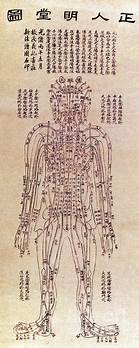
The Web of Science Core Collection was used to retrieve lists of 100 most-cited systematic reviews or meta-analyses in the field of acupuncture research. Two authors screened literature, extracted data, and analyzed the results.
The citation number of the 100 most-cited systematic reviews or meta-analyses varied from 65 to 577; they were published between 1989 and 2018. Fourteen authors published more than 1 study as the corresponding author and 10 authors published more than 1 study as the first author.
In terms of the corresponding authors, Edzard Ernst and Linde Klaus published the most systematic reviews/meta-analyses (n = 7). The USA published most of the systematic reviews or meta-analyses (n = 24), followed by England (n = 23) and China (n = 14). Most institutions with more than 1 study were from England (4/13). The institutions with the largest numbers of most-cited systematic reviews or meta-analyses were the Technical University of Munich in Germany, the University of Maryland School of Medicine in the USA (n = 8), the Universities of Exeter and Plymouth in England (n = 6), and the University of Exeter in England (n = 6). The journal with the largest number of most-cited systematic reviews or meta-analyses was the Cochrane Database of Systematic Reviews (n = 20), followed by Pain (n = 6). The majority of the 100 most-cited reviews are on pain or pain-related conditions. Only 4 of them focus on safety issues, and all of these are by my team.
The authors concluded that the 100 most-cited systematic reviews or meta-analyses in the acupuncture research field are mostly from high impact factor journals and developed countries. It will help researchers follow research hot spots, broaden their research scope, expand their academic horizons, and explore new research ideas, thereby improving the quality of acupuncture research.
The authors show that, both in the list of corresponding as well as first authors, I am in place number one! Not only that, they furthermore reveal that my department is also in place number 1 (as Universities of Exeter and Plymouth in England (n = 6), and the University of Exeter in England (n = 6) both refer to my unit [in the 19 years it existed the Exeter medical school changed affiliation twice]). This is remarkable, particularly because acupuncture was only one of several research foci of my team (the other 3 being herbal medicine, homeopathy, and spinal manipulation), and my department was closed almost 10 years ago.
When I write about acupuncture these days (mostly on this blog), I often get the impression that the true believers in this therapy don’t especially like what I have to say. I, therefore, fear that the concept of me being the WORLD CHAMPION of acupuncture reviews might cause some degree of displeasure to them.
What can I say?
